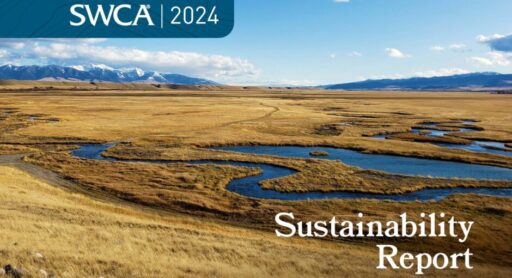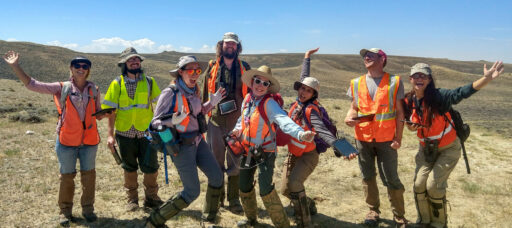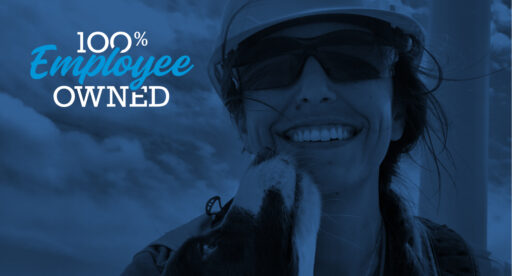2025
Comparably’s Best Company Outlook
* Providing engineering services in these locations through SWCA Environmental Consulting & Engineering, Inc., an affiliate of SWCA.

From the experts we hire, to the clients we partner with, our greatest opportunity for success lies in our ability to bring the best team together for every project.
That’s why:

At SWCA, sustainability means balancing humanity’s social, economic, and environmental needs to provide a healthy planet for future generations.

SWCA employs smart, talented, problem-solvers dedicated to our purpose of preserving natural and cultural resources for tomorrow while enabling projects that benefit people today.

At SWCA, you’re not just an employee. You’re an owner. Everyone you work with has a stake in your success, so your hard work pays off – for the clients, for the company, and for your retirement goals.
New Water Regulations in Arizona
Russell has more than 25 years of experience in environmental regulations compliance for federal, state, and local laws with an understanding of the nuances of FERC regulations and NEPA, CWA, and ESA compliance.


On June 22, 2020, the Navigable Waters Protection Rule (NWPR) became effective in all states, except Colorado. Under the new rule, waters of the U.S. (WOTUS) are defined as:
The NWPR also defines 12 categories of exclusions. Most notably, all ephemeral streams (e.g., arroyos) are categorically excluded from being considered a WOTUS and therefore are not federally protected under the Clean Water Act (CWA). Federal CWA Section 404 permits for dredge or fill activities would not be necessary for impacts to such drainage features.
In Arizona, the Arizona Department of Environmental Quality (ADEQ) administers a number of CWA programs, including Section 402 of the CWA, known as the Arizona Pollution Discharge Elimination System (AZPDES). In response to the new federal rule, ADEQ is currently pursuing changes to the definition of “Waters of Arizona” (WOA) and associated state regulations, including the AZPDES permit program, that would apply to certain categories of surface water features that are not protected under the CWA NWPR.
Once the new WOA changes are in place, projects that do not discharge directly to a WOTUS as defined under the NWPR (either directly or indirectly via a local Municipal Separate Storm Sewer System [MS4]) may still require an AZPDES permit and Stormwater Pollution Prevention Plan (SWPPP) if located on non-tribal land, cause 1 acre or more of ground disturbance, and may discharge to a WOA.
More information is provided here: https://azdeq.gov/permittee-meeting-resources
With offices across the U.S., including three in Arizona, SWCA can provide coordination services and local assistance in complying with the Clean Water Act.